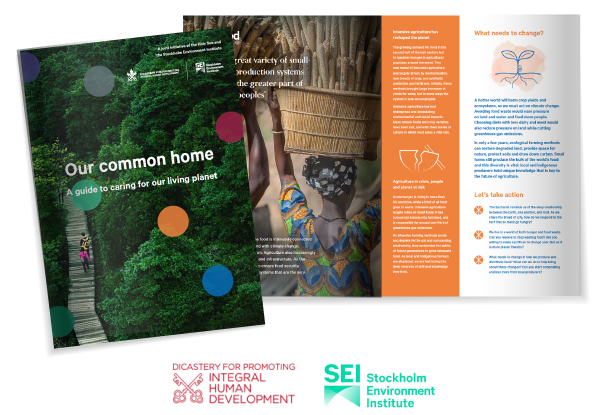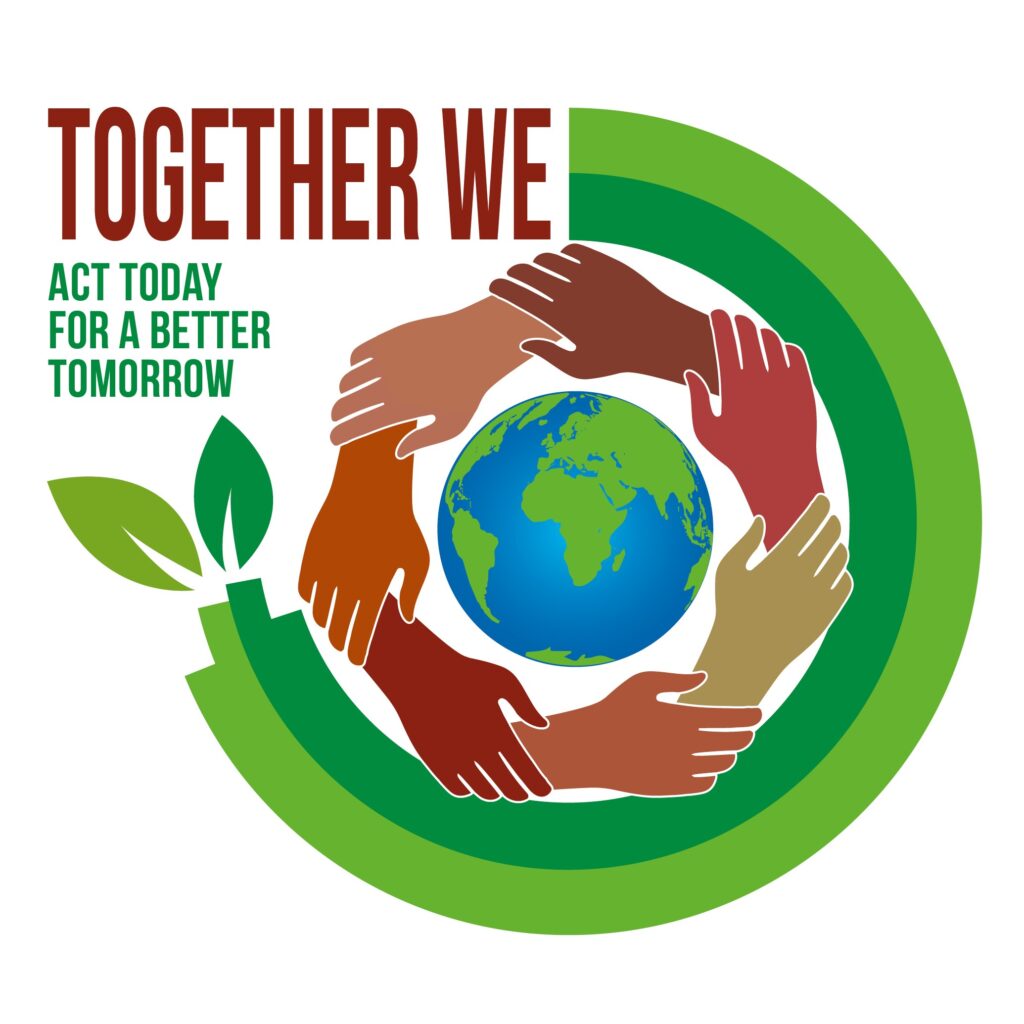“Because all creatures are connected, each must be cherished with love and respect”
Industrialization, mass consumption and transformations in agriculture have brought the living world to a crisis point. We have caused an ongoing mass extinction of species, from mammals
down to the smallest plants and bacteria. It’s urgent to change course and safeguard those wild ecosystems that remain and revive those that have been degraded. They are the basis of our survival and well-being.
SEA LEVEL RISE DRAMATICALLY ALTERS ISLAND LIFE FOR THOUSANDS IN THE PACIFIC REGION
With rising sea levels eroding coastlines, entire communities in the Pacific are losing homes, livelihoods, traditions and even a sense of their own cultural identity. Caritas wish to amplify the voices of communities in Oceania whose lives have drastically changed due to the impacts of climate change in their region.
Ursula Rachova, a woman of the Carteret Islands in Papua New Guinea, fears losing the land which has been passed down generations through the women in her family. She believes she will not be able to pass down this land to her own daughter one day as a result of sea level rise: “This is an island that belongs to us and we know that we are losing it.” Ms. Rachova said though her island home is disappearing, she will still “own the reef” and visit it to fish even if she has to move away.
In Fiji, on the island of Banueale alone, three villages have needed to be relocated due to rising sea levels. Caritas Fiji director, Sirino Rakabi, recalls the hardships faced by the community of Lindon Law who were forced to relocate two kilometres further inland seven years ago.
“Since 1952 the old people in the village had started to see the changes in terms of the rising sea level. In 2014, they were warned that they were able to relocate. It took them several years. It wasn’t easy for them to relocate because it’s the place of birth. Their ancestors’ burial ground is there. For them, their umbilical cord is buried in the ground where they were born, which is very significant in the culture,” Mr. Rakabi said.
An additional
complication that has developed due to the threat of sea level rise is the lack
of written documentation regarding land ownership. Consequently, the people of
the Naver Solomon community, decedents of slaves who were offered land by the
local Anglican church in the early 1900s to settle, may lose their home in Fiji
following the purchase of the land by the Kiribati government.
According to Caritas Fiji, the Kiribati government’s purchase of land in a neighbouring country is to mitigate the risk of displacement of Kiribati citizens. As coastlines continue to shrink due to rising sea levels, the country itself will eventually disappear over time. The loss of entire country – and not just of smaller island communities – is a fear felt by many in Kiribati. “The only thing I want is to save Kiribati. It’s not just about being alive and having a place to stay. No, it is about a country and a people called I-Kiribati people. We will continue to fight until there is no breath in us,” cries a woman from the Pacific Islands nation.
What needs to change?

With immediate action to conserve and restore ecosystems we can reverse the damage to nature. We need to protect and restore habitats on land and at sea. The land rights of local and indigenous peoples, who have deep and diverse
knowledge on the wise use of natural resources, must be strengthened.
We need to change how we produce and consume food. Restorative agricultural practices can both provide a haven for nature and help tackle climate change. Eating less meat and dairy and cutting
food waste will reduce pressure on ecosystems. And tackling the climate crisis will also prevent further loss of biodiversity.
Let’s take action
Laudato si’ challenges us to have a new reverence for all life (207). But our lack of reverence has led to ecological crisis. How can we redeem our relationship with creation?
Laudato si’ (92) reminds us that every act of cruelty towards any creature is contrary to human dignity. Let us resolve to end animal cruelty, especially in the livestock industry.
What can we do to reverse the destruction of natural ecosystems? How can we influence decision makers to make this a priority?
Our Common Home
A guide to caring for our living planet.
A joint initiative of the Holy See and the Stockholm Environment Institute.
Together We
Discover more about “Together We” Caritas Internationalis’ global campaign that strives to foster collaboration and engage communities in addressing worldwide social and humanitarian challenges.


